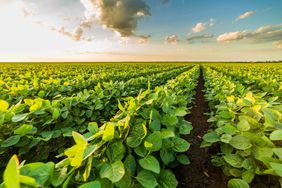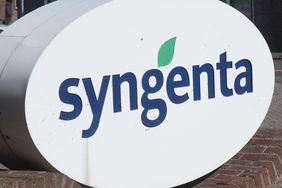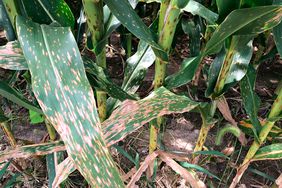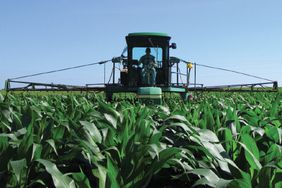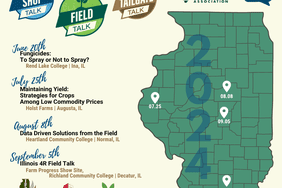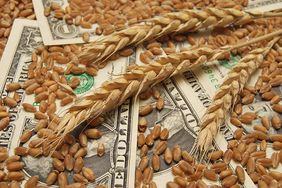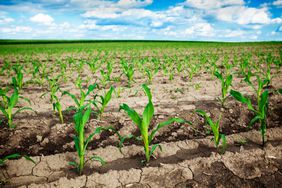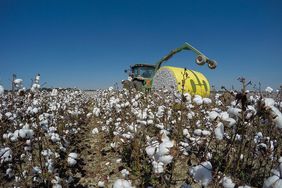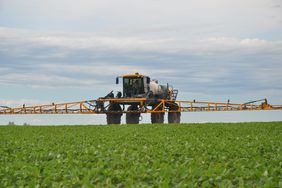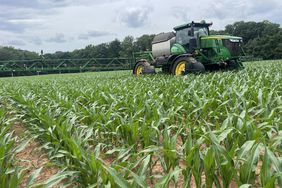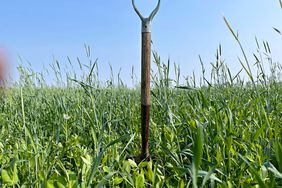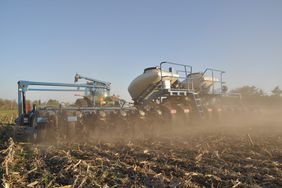:max_bytes(150000):strip_icc()/7_StandAssessment_476x318-2-43cf2050eb6745c4b1218eb66ddada54.jpg)
Alfalfa genetic discoveries have sped up in the past decade, with reduced-lignin, winter hardiness, and Roundup Ready traits marketed to growers by Forage Genetics International (FGI). Julie Ho is vice president of research for FGI. She's based in Davis, California. We caught up with Ho to ask her five questions about genetic advancement in alfalfa.
SF: What traits are being targeted for gene editing research?
JH: We are continually looking at ways to help our farmers produce more tonnage with better quality and better stability. Gene editing offers the opportunity to better speed to market based on a lower regulatory hurdle in the U.S.
SF: What is the timeline for the research and bringing products to market?
JH: In alfalfa, the traditional timeline is about six years for variety development and about 10 years for trait development following proof-of-concept in the field. However, over the past 10 years we've been able to adapt and apply technological advances – now established in the more highly invested crops, such as corn and soybeans – to shorten this timeline significantly in alfalfa.
We now apply marker-assisted selection of both GMO and native traits at virtually every step of our product development pipeline. This means we can sample hundreds of thousands of plants, select the predicted winners, and front-load the deck in our favor with respect to what material ends up getting tested in the field.
For a perennial crop like alfalfa, where field resource requirements are much greater than in an annual crop such as corn, this opportunity to preselect material in the lab or greenhouse before advancing to the field enables us to deliver better products to the market faster.
Gene editing, with a lower U.S. regulatory hurdle than traditional transgenic varieties, also will shorten the timeline for trait development, at least for products grown domestically.
SF: Is the work targeted at the dairy industry, or are other livestock considered?
JH: Yes, our product pipeline is targeted at key markets in the dairy industry, although the products are fed to other ruminants on a smaller scale, such as beef cattle, sheep and goats, and non-ruminants (mainly horses).
SF: Looking back 10 years, what advances have been made in alfalfa production?
JH: The biggest advances in alfalfa production over the past 10 years would be the release of Roundup Ready Alfalfa (fully deregulated in 2011) and HarvXtra Alfalfa (2014). In alfalfa, the Roundup Ready trait has enabled better stand establishment and weed control and, in turn, higher yield potential, feed quality, and persistence. The HarvXtra trait has delivered 15% to 20% improvements in forage quality (i.e., higher digestible fiber and reduced lignin content) compared with the cumulative 3% improvement over the 30 years prior.
By combining molecular and classical field breeding in the Midwest and Northeast, we've made remarkable step improvements in disease and insect tolerance, including anthracnose, aphanomyces, and potato leafhopper, while continuing to make incremental improvements in winter survival and yield. In the West and Plains, we've tackled challenges in water quality and availability by developing varieties with improved salinity and nematode tolerance. It's truly been an exciting and productive decade!
SF: Outside of gene editing, what other research looks promising for alfalfa production?
JH: To me, the most promising research for alfalfa today centers around this crop's value to farm productivity and land stewardship. In my opinion, the benefits of alfalfa to farm economics, whether hay grower or dairy producer, have not been communicated or broadly enough to realize fully grower ROI.
I'm very excited and proud to be a part of NAFA's 'Regeneration Nation' to showcase the nutritional and regenerative benefits of alfalfa to our stakeholders, and I believe that there is plenty of opportunity to push the envelope further through breeding, biotech, and data analytics.
As we face challenges of climate change, industry consolidation, and increasing pressure to utilize marginal lands, the timing couldn't be more ripe and our tool kit more powerful than ever.
